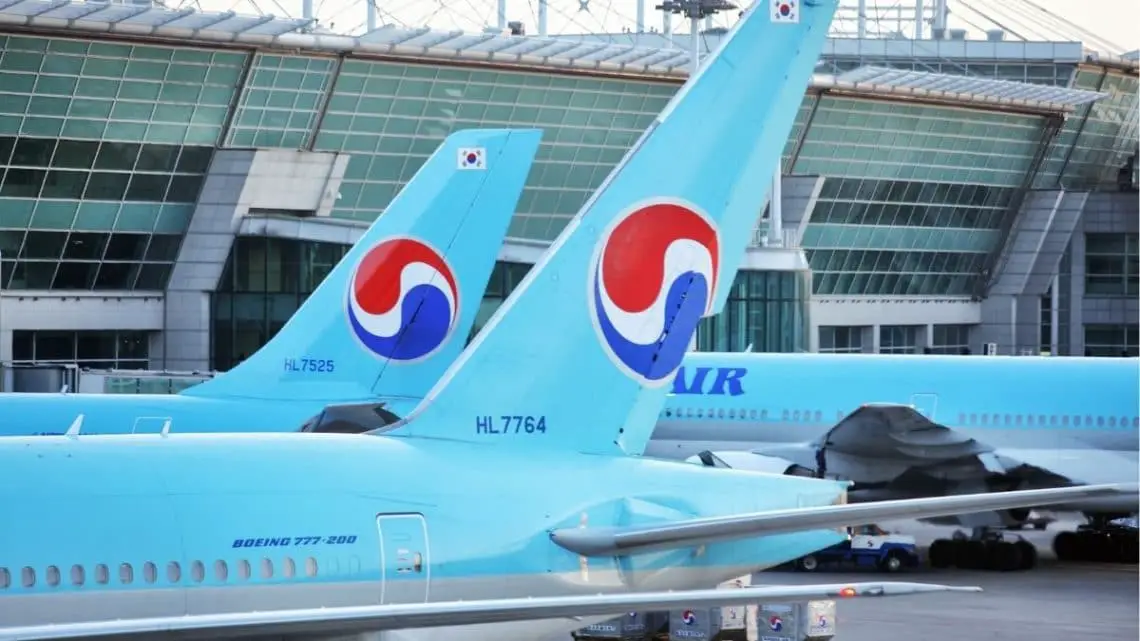
Hydrogen fuel infrastructure development gets Korean Air’s support
February 15, 2022The airline has signed a memorandum of understanding with several companies for H2 progress.
Korean Air has announced that it signed a hydrogen fuel infrastructure with Incheon International Airport Corporation (IIAC), Air Liquide and Airbus.
The collaboration is for supplying aviation H2 and to develop the necessary network around it.
The signing of the hydrogen fuel infrastructure MoU took place at the IIAC headquarters. In attendance were Korean Air Executive Vice President and Chief Safety & Operation Officer Soo Keun Lee, IIAC Vice President of Infrastructure Division Hyoung-Wook Jeon, Airbus Korea President Fabrice Espinosa, and Air Liquide Korea President and Representative Director Guillaume Cottet.
The agreement was in alignment with Airbus’ goal to develop the first zero-emission H2-powered commercial aircraft in the world by 2035. The collaboration also confirms Korean Air is actively taking part in the move forward toward alternative energy.
The MoU opened the door for stakeholders to play an active role in a range of different fields such as developing a hydrogen fuel infrastructure at airports, creating a blueprint for the introduction of H2 to ground handling logistics.

Korean Air will be concentrating on a spectrum of factors in hydrogen fuel infrastructure development.
The airline will focus its efforts on overall operational activities. These will include flight operations, ground handling planning, and maintenance. IIAC will be focusing on airport facility R&D. Airbus and Air Liquide will conduct an analysis of domestic H2-powered aircraft demand and will establish a pathway for H2 introduction.
“This MOU will be a starting point for the Korean domestic aviation industry to systemize a hydrogen supply chain system and infrastructure development, where the introduction of hydrogen as an alternative fuel has been slow in relative comparison to other industries,” said Soo Keun Lee in a media release.
Korean Air considers itself a global aviation industry pioneer. As such it intends to be a part of the development of a hydrogen fuel infrastructure as a part of its overall proactive climate change response. The airline has committed itself to a range of decarbonization efforts to bring itself to the point that it achieves carbon neutrality. It also wants to be a part of the Korean domestic H2 energy sector’s successful development.



 HFN News is your leading source for fresh hydrogen and renewable energy updates. Amid the fast-paced growth of hydrogen companies, we provide top-notch news and insights about this exciting sector. Our coverage spans from hydrogen cars to global sustainable initiatives, and we highlight the latest in green jobs and developing hydrogen hubs. We invite you to share your local hydrogen news and explore today’s renewable energy job listings on our site. Thanks for choosing HFN News as your trusted guide to the hydrogen and renewable energy world!
HFN News is your leading source for fresh hydrogen and renewable energy updates. Amid the fast-paced growth of hydrogen companies, we provide top-notch news and insights about this exciting sector. Our coverage spans from hydrogen cars to global sustainable initiatives, and we highlight the latest in green jobs and developing hydrogen hubs. We invite you to share your local hydrogen news and explore today’s renewable energy job listings on our site. Thanks for choosing HFN News as your trusted guide to the hydrogen and renewable energy world!